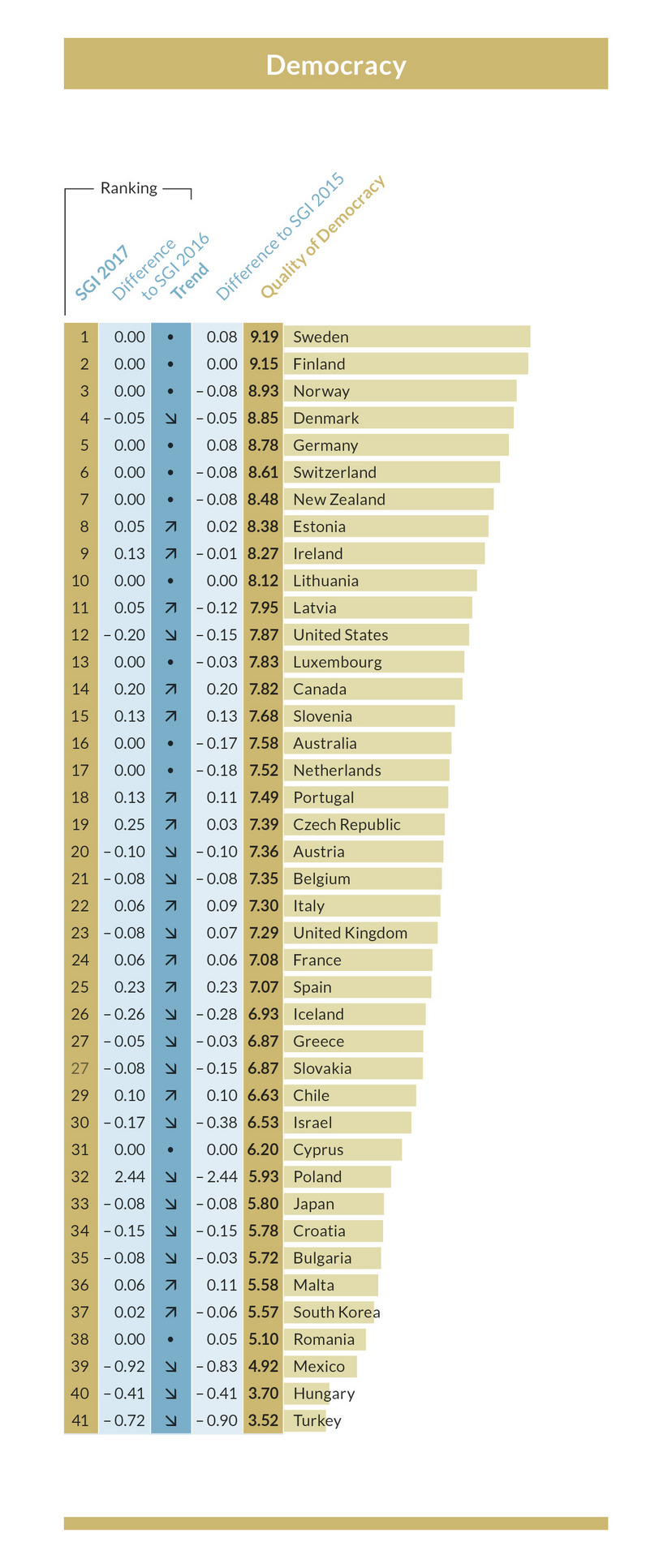Social inequality, climate change, global migration, the consequences of the worldwide economic and financial crisis of 2008 and international terrorism - the challenges facing the countries of the OECD and the EU have scarcely diminished over the last years. At the same time, however, opportunities to engage in long-term-oriented policy are compromised in many countries due to the advances being made by nationalist populism. The international community is drifting apart on issues of democracy quality and the rule of law. These are the key findings of our Sustainable Governance Indicators (SGI) 2017. From November 2015 to November 2016 the study assessed governance and reforms in all EU and OECD states on the basis of 136 indicators.
In the aggregate evaluation, the Scandinavian countries, led by Sweden, continue to achieve the best scores. Switzerland and Germany also fall into the top group. In contrast, the United States have deteriorated by three places, and continue to perform far below the average level (29th place). Greece again takes last place in the cross-country comparison, but for the first time, an improvement in policy outcomes is evident.
![[Translate to English:] Bundeskanzlerin Angela Merkel, US-Präsident Donald Trump und Großbritanniens Premierministerin Theresa May diskutieren während des G-20-Gipfels 2017 in Hamburg.](/fileadmin/files/_processed_/a/5/csm_19213419535390087270_716a2f308e_o_da5eda7f95.jpg)






